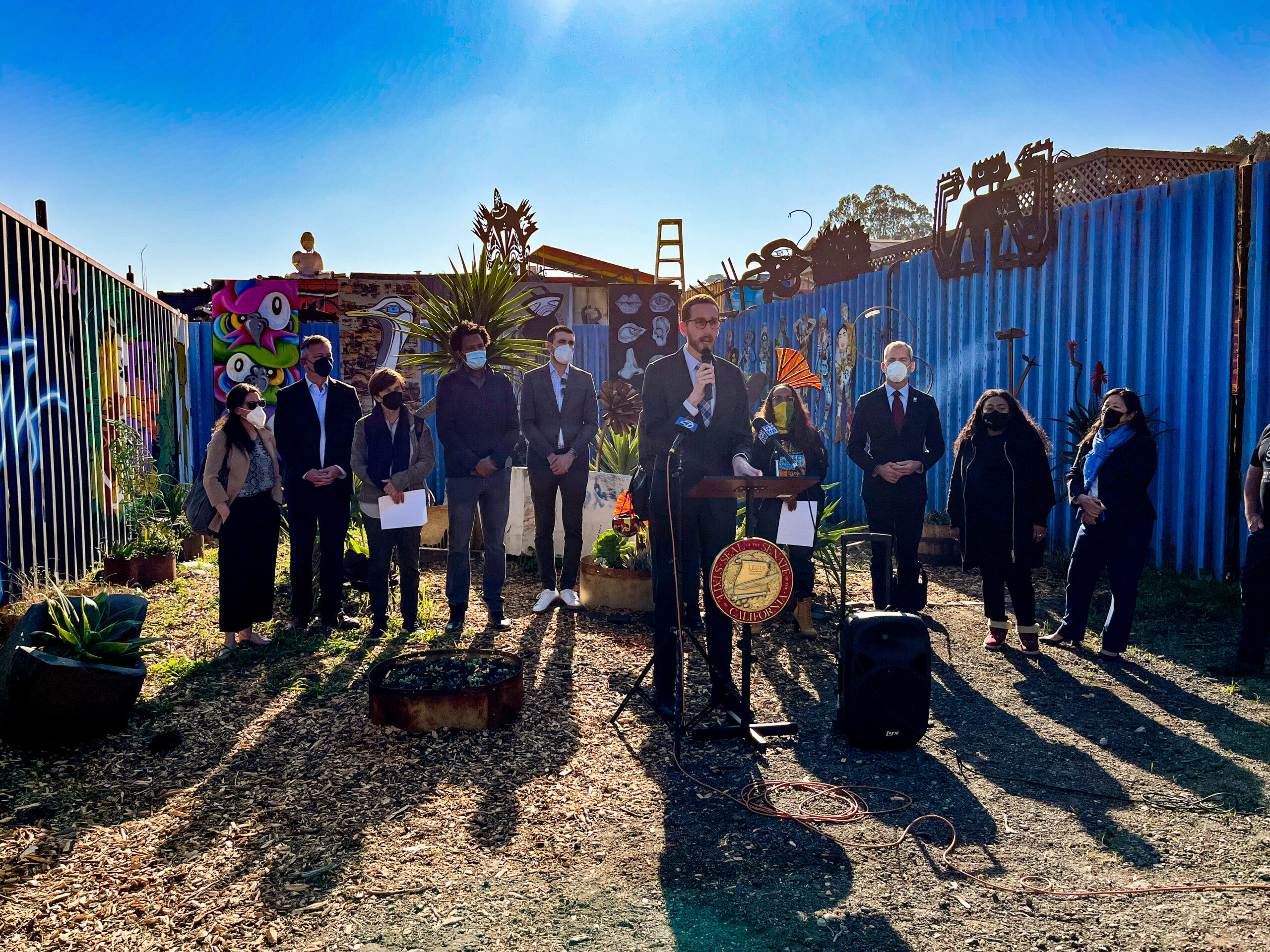A temporary 2020 law that helped fast-track a protected bike lane in the Bayview may soon become permanent. State Sen. Scott Wiener announced S.B. 922 on Monday, proposing an extension of the law allowing sustainable transportation projects on existing roads and transit right-of-ways to sidestep the cumbersome California Environmental Quality Act process.
“We need to make our streets safer yesterday. Not in a year, not in five years, not after seven years of appeals and lawsuit—now,” Weiner said. “When we delay making our streets safer, more people get injured and more people die.”
At a press conference Monday, Wiener said his previous legislation, S.B. 288, has helped streamline 10 projects, with 20 more in the pipeline. That legislation is set to sunset on Jan. 1, 2023.
Three completed and four of the proposed projects are located in San Francisco, including the San Francisco Municipal Transportation Agency project in the Bayview, which installed concrete barriers along Evans Ave. to make biking in the neighborhood safer.
The types of projects this bill targets to forego environmental review must be considered “sustainable,” like installing bike or bus lanes, modernizing rail stations or improving pedestrian infrastructure. Wiener said the new bill also opens up eligibility to projects that focus on expanding carpooling and institute parking policies that reduce congestion.
While CEQA is designed to allow for maximum public participation to prevent environmental damage, the law can be used as a stalling tactic. It’s not uncommon for a given project’s opponents to flag CEQA violations—not out of concern for the environment, but in an effort to tie up the project in red tape.
S.B. 922 seeks to prevent the weaponization of CEQA without defanging the environmental review process. Only projects proposed along an existing “right-of-way” would be allowed to bypass a CEQA evaluation. Projects along new routes, like a brand-new rail line, would still have to undergo full environmental review to assess their impact on nearby communities, Wiener said. For projects exceeding $100 million, additional requirements, like a racial equity analysis would be required.
“CEQA can be used in a way that’s very undemocratic,” Wiener explained. “CEQA has a very important role to play, but when it comes to projects that are clearly climate-friendly, they should not be tied up by an environmental law.”
The bill is supported by the SFMTA in addition to other local transit advocacy groups, including the Silicon Valley Leadership Group, SPUR, Bay Area Council and the California Transit Association.
